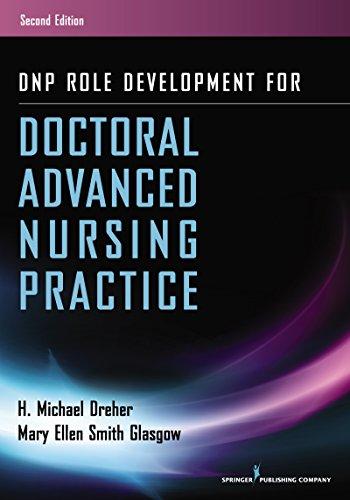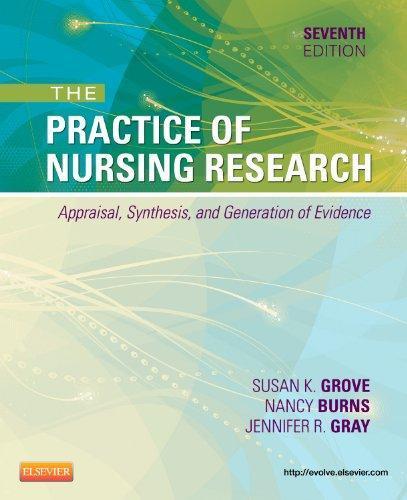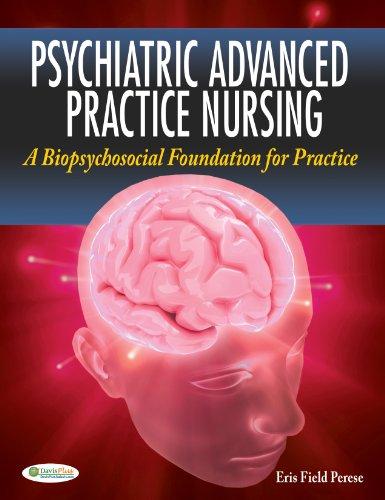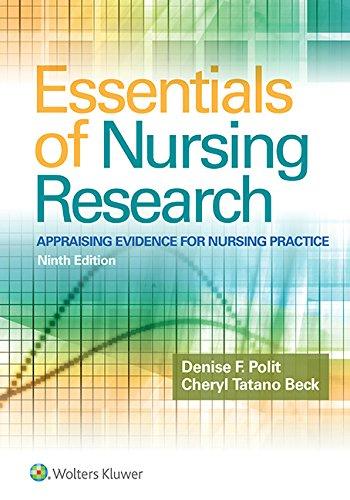Chapter 12 Shaping Your Brand: Marketing Yourself as a
Lisa Astalos Chism
DNP Graduate
Marketing Versus Branding
DNP Graduates as Marketpreneurs
Mission Statement
Vision Statement
Marketing Strategies
Unique Strategies for DNP Graduates
Summary
Reflection Questions
Suggested Group Activity
References
Chapter 13 Writing for Professional Publication
Elizabeth Johnston Taylor
The Process of Writing for Publication
Next Steps
Summary
Reflection Questions
Suggested Group Activities
References
Chapter 14 The Certification Question: Where Are We?
Karen McBroom Butler
Introduction
ANCC DNP Survey Results
American Board of Comprehensive Care
Consensus Model for APRN Regulation
Conclusion
Summary
Reflection Questions
Suggested Group Activity
References
Chapter 15 Storytelling: The Art of Translating the Essentials into Practice
Lisa Astalos Chism
Storytelling
My Story: How I Incorporate the DNP Essentials into My Practice
Isabel’s Story
Summary
Reflection Questions
Suggested Group Activity
References
Chapter 16 The DNP Degree: Past, Current, and Future Trends
Lisa Astalos Chism
The Historical Debate Regarding the DNP Degree
Current and Future Trends
Current and Future Recommendations
The DNP Degree and Societal Needs
Summary
Reflection Questions
Suggested Group Activity References
Index
Another random document with no related content on Scribd:
word wrongly used by socialists, 114;
exposition of capital by Marx, 138, etc.;
its international relation to labour, 171, etc.;
its place in anarchism, 241, 245;
its place in a reasonable socialism, 290, etc.
Capitalism, correct name for the prevalent economic order as controlled by capitalists, 115, 141, 145.
Catholic Church, its societies and their property, 16;
how related to Saint-Simon, 25, 29;
its social activity, 340.
Chartism, its import, 42, 70.
Christian socialism, in England, 71;
in Germany, 342.
Christian Social Union, 343.
Christianity, relation to socialism, 10, 71, 339, 389.
Clifford, 343.
Collectivism, economic basis of the prevalent socialism, 12;
its place in L. Blanc’s system, 46;
goal of Lassalle’s scheme, 111;
economic basis of anarchism, 247, 249;
goal of the social democratic movement, 229;
its abstractness criticised, 290;
the goal of international socialism, 369.
Colonial system, 368.
Commune, the, its place in Fourier’s system, 31;
at Paris, 188;
its place in anarchism, 243, 273;
its general place in socialism, 289, 346.
Communism, its relation to socialism, 16, 18.
Communist Party, formation, 133, 172;
its manifesto, 173, etc., 366, etc.
Conjunctures, Lassalle’s theory of, 112.
Co-operative movement, really founded by Owen, 70;
promoted by Christian socialists in England, 71;
movement in Germany and its relation to Lassalle, 84, 106, 107, 116;
commended by the International, 180, 184, 185;
its recent progress, 350, etc.
Darwin, relation of his doctrine of development to economics, 281;
relation of his teaching to that of Marx, 294;
relation of his theory to socialism, 295, etc.
Democracy, socialism its economic complement, 10;
one of the conditions necessary for the growth of socialism, 18;
the political basis of L. Blanc’s schemes, 43, etc.;
development of, 47;
democracy of workers, 99, 120;
how trained for its great task, 148, 160;
its importance, 284, 287, 288;
its place in social evolution, 357, 381, etc.
Denmark, 318.
Distribution, problem of, how solved in various schools of socialism, 9;
such methods criticised, 291;
moral and scientific basis of, 360.
Dönniges, Fraulein von, 91.
Empire, the conception of, and socialism, 406-409.
Enfantin, 26, 27, 29.
Engels, Fr., 73, 130, 132, 135;
his exposition of the function of the State, 150.
Fabian Society, origin and aims, 329, 330;
some of its views criticised, 331, 400, 401;
its basis, 427.
Feudalism, in relation to socialism, 11, 19, 24;
its overthrow by the capitalist class, 97, 142;
not a stereotyped system, 278;
evolved by the struggle for existence, 298.
Fourier, method of remuneration, 9;
admitted private capital, 13;
a founder of socialism, 15;
grew up under the immediate influence of the French Revolution, 18;
life and opinions, 31;
contrast to Saint-Simon and the centralising socialism, 31, 273, 274;
his safeguards for individual and local freedom, 290.
George, Henry, 328.
Hegel, influence on Lassalle, 74;
on Marx, 131, 151, 152, 161, 279;
his doctrine of development, 294.
Held, Adolf, definition of socialism, 5. Holland, 318.
Homestead, its place in a reasonable socialism, 407. Hyndman, 328.
Independent Labour Party, 330, 332. India, 368, 408.
Individuality under socialism, 11, 307, 406, 420.
International, its aim, 6;
Marx and the International, 166;
history, 168;
influence in it of Bakunin, 190;
influence of it on the Russian revolutionary movement, 260;
revival, 363, etc. Italy, 322, 381, 391.
Janet, Paul, definition of socialism, 5.
Jaurèz, 321.
Keir Hardie, Mr., 333. Kent, Duke of, 66.
Ketteler, Bishop, 88, 340.
Kingsley, 71.
Kropotkin, Prince, 243, 244.
Labour Party in Britain, how founded, 332-333;
its strength and character, 333.
Laissez-faire, 4;
economic optimism implied in it, 14;
entirely unsuitable to Prussia, 280;
its adherents in England, 347;
influence on labour, 398.
Lassalle, at Paris, 42;
on the power of lying, 49;
his life, 73;
his theories, 95;
his relations to Marx, 95;
Rodbertus, 95, 124;
position of the Social Democratic Party at his death, 203;
Bismarck’s relation to him, 216;
his influence on the revolutionary party in Russia, 259;
points of agreement with L. Blanc, 273, 274;
his presentation of socialism, 279;
exaggerated estimate of the influence of the social principle, 306;
his Iron Law of Wages, considered in relation to the evolution of capitalism, 409.
Laveleye, definition of socialism, 5.
Lavroff, 243, 260.
Leroux, Pierre, 26.
Liebknecht, W., 208, 210, 218, 233, etc., 316.
Lodge, Senator, on the very serious situation established by the trusts, 372, 376. Ludlow, 71.
Malthus, relation to Owen, 69;
his theory and the population question, 296;
struggle for existence, 297.
Manchester theory of the State, 102.
Marx, Karl, his relation to the existing State, 6;
his school the most influential form of contemporary socialism, 15;
Proudhon’s right of aubaine, compared with the theory of capital, 56;
his theory of surplus value enunciated by the Chartists, 71;
comparison of his character with Lassalle’s, 92;
relation of his theory of surplus value to Lassalle’s Iron Law of Wages, 103;
collectivism common to him with Lassalle and Rodbertus, 111;
use of the word capital, 114;
life and theories, 130;
criticism of his theories, 154;
compared with Adam Smith, 162;
his place in history, 166;
founding of the Communist League, 172;
influence on the International, 179, etc.;
influence on the Social Democratic movement in Germany, 230;
influence on the revolutionary movement in Russia, 259;
socialist movement should not be identified with his views, 275;
his abstractness, 279;
in England, 328;
his views criticised, 386, etc., 411, etc.
Materialism, relation to socialism, 10;
as held by Marx, 151, 158, etc.;
held by Bakunin, 240;
socialism purified from it, 285.
Maurice, 71.
Mazzini, 179, 243.
Militarism, 368.
Mill, J. S., his conception of socialism, 286. Milton, 414.
Mir, the Russian form of the village community, 251, etc.;
its analogy to the community of Owen, the phalangeof Fourier, and the free commune of Bakunin, 273;
its possible disintegration, 384;
the starting-point of agrarian reform, 392.
More, Thomas, 16.
Municipality, or commune, as a factor in the evolution of socialism, 189, 346, etc.
Napoleon I., 169.
Napoleon III., 57, 178.
New Christianity of Saint-Simon, 25.
New Harmony, 66.
New Lanark, 60.
New Zealand, a democratic State, 349.
Nicholas, Emperor, 63.
Nihilism, the correct name for the early stage of the revolutionary movement in Russia, 257, etc.
Orbiston, 96.
Owen, Robert, founder of the association of all classes of all nations, 3;
one of the historic founders of socialism, 4, etc.;
the influences that conditioned his work, 19;
life and theories, 59;
doctrine of surplus value held in his school, 137;
influence on Russian revolutionary movement, 259;
desire for a ready-made socialism, 273.
Phalange, 31, 33, 273.
Plato, 16.
Political economy, its relation to socialism, 14;
historical and ethical conception of, promoted by socialism, 281;
its relation to socialism again considered, 338, 339, 409-410.
Progressist party in Germany, 79, 83, 208.
Proletariat, the class excluded from land and capital and dependent on wage-labour, 8;
brought into active historic contrast to the bourgeoisie, 41;
its share in the risings at Paris, 1848, 50;
its position conditioned by the development of capitalism, 139;
and necessary to it, 141;
its great rôlein the final dissolution of capitalism, 148, etc.;
its emancipation, the great aim of international socialism, 172;
Marx the scientific expounder of the conditions of its existence and of its emancipation, 173, etc.;
the Commune at Paris considered as a struggle for its deliverance, 189;
how existing in Russia, 260;
the democracy still mainly a proletariat, 357;
Marx’s theory of its future development, 412.
Proudhon, one of the leaders of the socialism of 1848, 42;
life and theories, 51;
theory of surplus value underlies his extravagances, 137;
the founder of anarchism, 56, 237;
his influence in the International, 183;
his exposition of anarchism, 248.
Ralahine, 67.
Reybaud, 4.
Rockefeller, 371, 376.
Rodbertus, his general conception of socialism, 13;
relation to Lassalle, 95, 96;
life and theories, 123;
relation to Lassalle and Marx, 137;
too abstract and Prussian, 279.
Roosevelt, his proposals for social reform, 399.
Roscher, 5.
Rousseau, 18.
Russia, the development of socialistic opinion, 21;
anarchism, 237;
revolutionary opinion, 250, etc.;
renewal of revolutionary activity, 325-327;
its repression, 382-384.
Saint-Simon, one of the historic founders of socialism, 4, 15, etc.;
his life and opinions, 22;
represented the principle of authority in the development of socialism, 274;
the golden age, 420.
Schäffle, definition of socialism, 12;
too abstract and Prussian in his conception of socialism, 277;
his high rank as an economist, 339.
Scheel, 6.
Schulze-Delitzsch, his schemes, 84;
Lassalle’s treatment of him, 86;
Lassalle’s criticism of his schemes, 107;
the same examined, 115, etc.
Schweitzer, 203, 207, etc.
Shaw, G. B., 330.
Smith, Adam, in relation to freedom, 17;
compared with Marx, 162;
his principle of natural liberty, 278, 292.
Social Democracy, its programme in Germany, 9;
as taught by L. Blanc, 48;
by Lassalle, 84, etc.;
German, 197, etc., 311, etc.;
its general aim, 363, etc.
Social Democratic Federation, 329.
Social selection, 304, 416.
Social workshops of Louis Blanc, 45, 48.
Socialist League, 329.
Socialist Revolutionary Party in Russia, 326, 382.
Spectator, 382.
State, in relation to socialism, 6;
historic relation to property, 16;
its place in Saint-Simon, 31;
in Louis Blanc, 44;
in Lassalle, 101, etc.;
in Rodbertus, 127;
its rôleas explained by Fr. Engels, 150;
Bakunin’s relation to it, 240;
two opposing tendencies with regard to it in socialist movement, 274;
its place in socialism, 345, etc.;
further discussed, 400, 401, 405-409.
Stepniak’s estimate of the numbers of the Russian Revolutionary Party, 271.
Strike, general, advocated by Bebel to meet certain emergencies, 316.
Surplus value, theory of, as held by Chartists, 71;
as held by Owenites, Rodbertus, Proudhon, etc., 137;
its development by Marx, 138, etc.;
criticism of Marx’s theory of it, 154.
Times, the, and the International, 187.
Trade unions and socialism, 367, 369, 391-405.
Trusts, how they have grown in America, 335-337;
a remedy for the evils of competition, 354-355;
not confined to America, 355;
a proof of the inadequacy of competition, 359, but a natural result of it, 404;
a menace to labour and to society, 411.
Turgenief, his novel, FathersandSons, 258.
Tytherley, 67.
Tzardom, its great function in Russian history, 251, 266, etc.
Vienna, great demonstration, 377.
Village community, its place in history, 253;
in English history, 397;
should be restored to life under modern conditions, 407.
Voltaire, 18, 246.
Vooruit, at Ghent, 352.
Wages, Iron Law of, 103, etc., 384.
Wagner, definition of socialism, 12;
justly charged with abstractness, 277. Webb, Sidney, 330.
Wells, H. G., 330. Westcott, 343.
William I., Emperor, 79.
William II., Emperor, 121, 195.
THE END
PrintedbyR. & R. CLARK, LIMITED, Edinburgh.
*** END OF THE PROJECT GUTENBERG EBOOK A HISTORY OF SOCIALISM ***
Updated editions will replace the previous one—the old editions will be renamed.
Creating the works from print editions not protected by U.S. copyright law means that no one owns a United States copyright in these works, so the Foundation (and you!) can copy and distribute it in the United States without permission and without paying copyright royalties. Special rules, set forth in the General Terms of Use part of this license, apply to copying and distributing Project Gutenberg™ electronic works to protect the PROJECT GUTENBERG™ concept and trademark. Project Gutenberg is a registered trademark, and may not be used if you charge for an eBook, except by following the terms of the trademark license, including paying royalties for use of the Project Gutenberg trademark. If you do not charge anything for copies of this eBook, complying with the trademark license is very easy. You may use this eBook for nearly any purpose such as creation of derivative works, reports, performances and research. Project Gutenberg eBooks may be modified and printed and given away you may do practically ANYTHING in the United States with eBooks not protected by U.S. copyright law. Redistribution is subject to the trademark license, especially commercial redistribution.
START: FULL LICENSE
THE FULL PROJECT GUTENBERG LICENSE
PLEASE READ THIS BEFORE YOU DISTRIBUTE OR USE THIS WORK
To protect the Project Gutenberg™ mission of promoting the free distribution of electronic works, by using or distributing this work (or any other work associated in any way with the phrase “Project Gutenberg”), you agree to comply with all the terms of the Full Project Gutenberg™ License available with this file or online at www.gutenberg.org/license.
Section 1. General Terms of Use and Redistributing Project Gutenberg™ electronic works
1.A. By reading or using any part of this Project Gutenberg™ electronic work, you indicate that you have read, understand, agree to and accept all the terms of this license and intellectual property (trademark/copyright) agreement. If you do not agree to abide by all the terms of this agreement, you must cease using and return or destroy all copies of Project Gutenberg™ electronic works in your possession. If you paid a fee for obtaining a copy of or access to a Project Gutenberg™ electronic work and you do not agree to be bound by the terms of this agreement, you may obtain a refund from the person or entity to whom you paid the fee as set forth in paragraph 1.E.8.
1.B. “Project Gutenberg” is a registered trademark. It may only be used on or associated in any way with an electronic work by people who agree to be bound by the terms of this agreement. There are a few things that you can do with most Project Gutenberg™ electronic works even without complying with the full terms of this agreement. See paragraph 1.C below. There are a lot of things you can do with Project Gutenberg™ electronic works if you follow the terms of this agreement and help preserve free future access to Project Gutenberg™ electronic works. See paragraph 1.E below.
1.C. The Project Gutenberg Literary Archive Foundation (“the Foundation” or PGLAF), owns a compilation copyright in the collection of Project Gutenberg™ electronic works. Nearly all the individual works in the collection are in the public domain in the United States. If an individual work is unprotected by copyright law in the United States and you are located in the United States, we do not claim a right to prevent you from copying, distributing, performing, displaying or creating derivative works based on the work as long as all references to Project Gutenberg are removed. Of course, we hope that you will support the Project Gutenberg™ mission of promoting free access to electronic works by freely sharing Project Gutenberg™ works in compliance with the terms of this agreement for keeping the Project Gutenberg™ name associated with the work. You can easily comply with the terms of this agreement by keeping this work in the same format with its attached full Project Gutenberg™ License when you share it without charge with others.
1.D. The copyright laws of the place where you are located also govern what you can do with this work. Copyright laws in most countries are in a constant state of change. If you are outside the United States, check the laws of your country in addition to the terms of this agreement before downloading, copying, displaying, performing, distributing or creating derivative works based on this work or any other Project Gutenberg™ work. The Foundation makes no representations concerning the copyright status of any work in any country other than the United States.
1.E. Unless you have removed all references to Project Gutenberg:
1.E.1. The following sentence, with active links to, or other immediate access to, the full Project Gutenberg™ License must appear prominently whenever any copy of a Project Gutenberg™ work (any work on which the phrase “Project
Gutenberg” appears, or with which the phrase “Project Gutenberg” is associated) is accessed, displayed, performed, viewed, copied or distributed:
This eBook is for the use of anyone anywhere in the United States and most other parts of the world at no cost and with almost no restrictions whatsoever. You may copy it, give it away or re-use it under the terms of the Project Gutenberg License included with this eBook or online at www.gutenberg.org. If you are not located in the United States, you will have to check the laws of the country where you are located before using this eBook.
1.E.2. If an individual Project Gutenberg™ electronic work is derived from texts not protected by U.S. copyright law (does not contain a notice indicating that it is posted with permission of the copyright holder), the work can be copied and distributed to anyone in the United States without paying any fees or charges. If you are redistributing or providing access to a work with the phrase “Project Gutenberg” associated with or appearing on the work, you must comply either with the requirements of paragraphs 1.E.1 through 1.E.7 or obtain permission for the use of the work and the Project Gutenberg™ trademark as set forth in paragraphs 1.E.8 or 1.E.9.
1.E.3. If an individual Project Gutenberg™ electronic work is posted with the permission of the copyright holder, your use and distribution must comply with both paragraphs 1.E.1 through 1.E.7 and any additional terms imposed by the copyright holder. Additional terms will be linked to the Project Gutenberg™ License for all works posted with the permission of the copyright holder found at the beginning of this work.
1.E.4. Do not unlink or detach or remove the full Project Gutenberg™ License terms from this work, or any files
containing a part of this work or any other work associated with Project Gutenberg™.
1.E.5. Do not copy, display, perform, distribute or redistribute this electronic work, or any part of this electronic work, without prominently displaying the sentence set forth in paragraph 1.E.1 with active links or immediate access to the full terms of the Project Gutenberg™ License.
1.E.6. You may convert to and distribute this work in any binary, compressed, marked up, nonproprietary or proprietary form, including any word processing or hypertext form. However, if you provide access to or distribute copies of a Project Gutenberg™ work in a format other than “Plain Vanilla ASCII” or other format used in the official version posted on the official Project Gutenberg™ website (www.gutenberg.org), you must, at no additional cost, fee or expense to the user, provide a copy, a means of exporting a copy, or a means of obtaining a copy upon request, of the work in its original “Plain Vanilla ASCII” or other form. Any alternate format must include the full Project Gutenberg™ License as specified in paragraph 1.E.1.
1.E.7. Do not charge a fee for access to, viewing, displaying, performing, copying or distributing any Project Gutenberg™ works unless you comply with paragraph 1.E.8 or 1.E.9.
1.E.8. You may charge a reasonable fee for copies of or providing access to or distributing Project Gutenberg™ electronic works provided that:
• You pay a royalty fee of 20% of the gross profits you derive from the use of Project Gutenberg™ works calculated using the method you already use to calculate your applicable taxes. The fee is owed to the owner of the Project Gutenberg™ trademark, but he has agreed to donate royalties under this paragraph to the Project Gutenberg Literary Archive Foundation. Royalty
payments must be paid within 60 days following each date on which you prepare (or are legally required to prepare) your periodic tax returns. Royalty payments should be clearly marked as such and sent to the Project Gutenberg Literary Archive Foundation at the address specified in Section 4, “Information about donations to the Project Gutenberg Literary Archive Foundation.”
• You provide a full refund of any money paid by a user who notifies you in writing (or by e-mail) within 30 days of receipt that s/he does not agree to the terms of the full Project Gutenberg™ License. You must require such a user to return or destroy all copies of the works possessed in a physical medium and discontinue all use of and all access to other copies of Project Gutenberg™ works.
• You provide, in accordance with paragraph 1.F.3, a full refund of any money paid for a work or a replacement copy, if a defect in the electronic work is discovered and reported to you within 90 days of receipt of the work.
• You comply with all other terms of this agreement for free distribution of Project Gutenberg™ works.
1.E.9. If you wish to charge a fee or distribute a Project Gutenberg™ electronic work or group of works on different terms than are set forth in this agreement, you must obtain permission in writing from the Project Gutenberg Literary Archive Foundation, the manager of the Project Gutenberg™ trademark. Contact the Foundation as set forth in Section 3 below.
1.F.
1.F.1. Project Gutenberg volunteers and employees expend considerable effort to identify, do copyright research on, transcribe and proofread works not protected by U.S. copyright
law in creating the Project Gutenberg™ collection. Despite these efforts, Project Gutenberg™ electronic works, and the medium on which they may be stored, may contain “Defects,” such as, but not limited to, incomplete, inaccurate or corrupt data, transcription errors, a copyright or other intellectual property infringement, a defective or damaged disk or other medium, a computer virus, or computer codes that damage or cannot be read by your equipment.
1.F.2. LIMITED WARRANTY, DISCLAIMER OF DAMAGES - Except for the “Right of Replacement or Refund” described in paragraph 1.F.3, the Project Gutenberg Literary Archive Foundation, the owner of the Project Gutenberg™ trademark, and any other party distributing a Project Gutenberg™ electronic work under this agreement, disclaim all liability to you for damages, costs and expenses, including legal fees. YOU AGREE THAT YOU HAVE NO REMEDIES FOR NEGLIGENCE, STRICT LIABILITY, BREACH OF WARRANTY OR BREACH OF CONTRACT EXCEPT THOSE PROVIDED IN PARAGRAPH 1.F.3. YOU AGREE THAT THE FOUNDATION, THE TRADEMARK OWNER, AND ANY DISTRIBUTOR UNDER THIS AGREEMENT WILL NOT BE LIABLE TO YOU FOR ACTUAL, DIRECT, INDIRECT, CONSEQUENTIAL, PUNITIVE OR INCIDENTAL DAMAGES EVEN IF YOU GIVE NOTICE OF THE POSSIBILITY OF SUCH DAMAGE.
1.F.3. LIMITED RIGHT OF REPLACEMENT OR REFUND - If you discover a defect in this electronic work within 90 days of receiving it, you can receive a refund of the money (if any) you paid for it by sending a written explanation to the person you received the work from. If you received the work on a physical medium, you must return the medium with your written explanation. The person or entity that provided you with the defective work may elect to provide a replacement copy in lieu of a refund. If you received the work electronically, the person or entity providing it to you may choose to give you a second opportunity to receive the work electronically in lieu of a refund.
If the second copy is also defective, you may demand a refund in writing without further opportunities to fix the problem.
1.F.4. Except for the limited right of replacement or refund set forth in paragraph 1.F.3, this work is provided to you ‘AS-IS’, WITH NO OTHER WARRANTIES OF ANY KIND, EXPRESS OR IMPLIED, INCLUDING BUT NOT LIMITED TO WARRANTIES OF MERCHANTABILITY OR FITNESS FOR ANY PURPOSE.
1.F.5. Some states do not allow disclaimers of certain implied warranties or the exclusion or limitation of certain types of damages. If any disclaimer or limitation set forth in this agreement violates the law of the state applicable to this agreement, the agreement shall be interpreted to make the maximum disclaimer or limitation permitted by the applicable state law. The invalidity or unenforceability of any provision of this agreement shall not void the remaining provisions.
1.F.6. INDEMNITY - You agree to indemnify and hold the Foundation, the trademark owner, any agent or employee of the Foundation, anyone providing copies of Project Gutenberg™ electronic works in accordance with this agreement, and any volunteers associated with the production, promotion and distribution of Project Gutenberg™ electronic works, harmless from all liability, costs and expenses, including legal fees, that arise directly or indirectly from any of the following which you do or cause to occur: (a) distribution of this or any Project Gutenberg™ work, (b) alteration, modification, or additions or deletions to any Project Gutenberg™ work, and (c) any Defect you cause.
Section 2. Information about the Mission of
Project Gutenberg™ is synonymous with the free distribution of electronic works in formats readable by the widest variety of computers including obsolete, old, middle-aged and new computers. It exists because of the efforts of hundreds of volunteers and donations from people in all walks of life.
Volunteers and financial support to provide volunteers with the assistance they need are critical to reaching Project Gutenberg™’s goals and ensuring that the Project Gutenberg™ collection will remain freely available for generations to come. In 2001, the Project Gutenberg Literary Archive Foundation was created to provide a secure and permanent future for Project Gutenberg™ and future generations. To learn more about the Project Gutenberg Literary Archive Foundation and how your efforts and donations can help, see Sections 3 and 4 and the Foundation information page at www.gutenberg.org.
Section 3. Information about the Project












